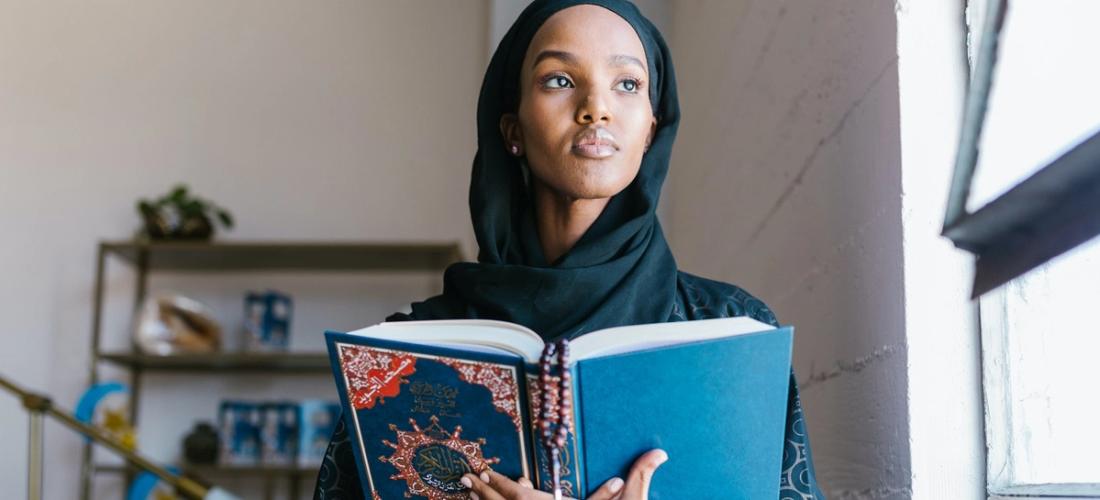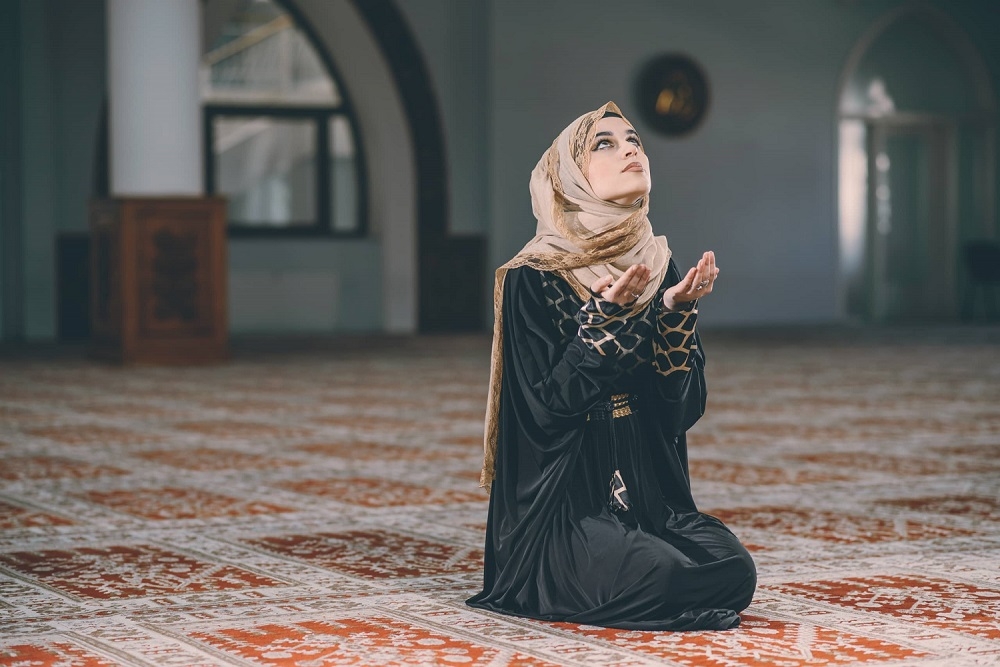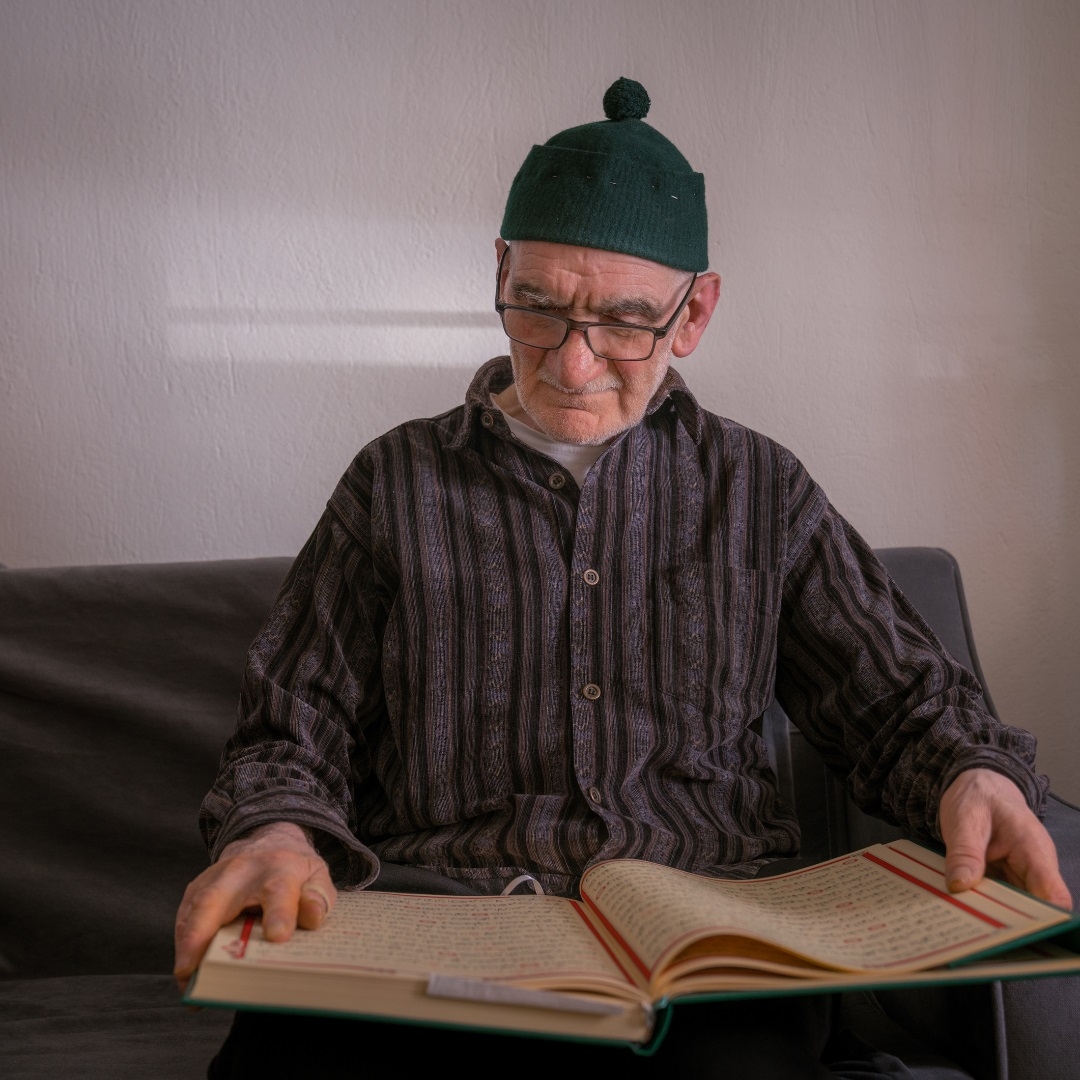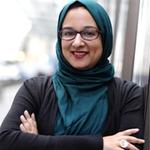Can You Make Du'a (Prayer) for Non-Muslims Who Are Ill?
Faith
|
Jan 12, 2024
|
3 MIN READ

Image source: Pexels
Recently I returned from the trip of a lifetime with my family, something we were wanting to do from the time my daughter graduated from high school three years back. But you know, COVID times. We took our children (two out of three, as our profoundly autistic eldest son stayed home to be spoiled rotten by his four grandparents) to visit the three holiest mosques to Muslims - Al Aqsa in Al Quds (Jerusalem), Masjid Nabuwi in Madinah and Masjid Haram/Ka'ba (where we did our Umrah) in Makkah.
It was the trip of a lifetime filled with worship, learning of Islamic history, visiting of Islamic sites and masajid important to faith and heritage as Muslims. Throughout the trip, I had a list (as do most all Muslims when they travel for Umrah or Hajj) of prayers people asked me to make for them.
There were prayers on the list that people hadn't asked for, but I wanted to make as well. And some of those prayers were for people dear to me (and humanity at large) who are not Muslim.
Prior to leaving for the trip, we had an impromptu office discussion one day about if Muslims, we are allowed to make prayer for non-Muslims, especially those who are sick. The answer felt obvious to us (um, yes), but we wanted Islamic scholarly verification of this from an Imam, and Ustadh(a) or someone with appropriate knowledge.
And so our CEO Melanie put the question to her father, Imam Mustapha Elturk of the Islamic Organization of North America. This was the response he sent me:

Image source: Shutterstock
In the name of Allah, the Compassionate, the Merciful
Assalamu Alaikum WRWB,
Is it permissible to pray, make du'a, for non-Muslims who are ill?
The answer is absolutely:
Allah does not forbid you from treating those who have neither fought you because of your religion, nor have they driven you out of your homes, with benevolence and equity. Verily, Allah loves those who are just.
al-Mumtahinah, 60:8
Not only are we allowed to make du'a for them for healing, using the prophetic du'a or any d'ua for a cure or a healing, but we are encouraged to visit them and even support them financially from the Muslims’ public charity to cover medical costs if the patient does not have sufficient funds.
Here are some examples of du'a,
The Prophetic du'a for healing:
اللَّهُمَّ رَبَّ النَّاسِ أَذْهِبِ الْبَاسَ، اشْفِهِ ) اشْفِها( وَأَنْتَ الشَّافِي، لاَ شِفَاءَ إِلاَّ شِفَاؤُكَ، شِفَاءً لاَ يُغَادِرُ سَقَمًا ”
([Allāhumma] rabban-nās, adh-hibil-ba’sa washfi (washfiha if female) waantash-shāfi, lā shifā’a illā shifā’uka shifā’an lā yughādiru saqama).’”\
“O Allah, the Lord of the people! Remove the trouble and heal him/her, for You are the Healer. there is no healing except your healing, a healing that does not leave any trace of illness.” [Bukhari]
The Prophet (saw) would make this du'a for anyone who was ill, and by the mercy of Allah (S), they would be cured.
بِسْمِ اللَّهِ أَعُوذُ بِعِزَّةِ اللَّهِ وَقُدْرَتِهِ مِنْ شَرِّ مَا أَجِدُ وَأُحَاذِرُ
Bismillah, a’udhu bi’izzatil-lahi wa qudratihi min sharri ma ajidu wa uhadhiru.
"In the Name of Allah, I seek refuge in the might and power of Allah from the evil of what I feel and what I fear.” [Sunan Ibn]
Note: The patient (who is a non-Muslim) may make this du'a, starting with “in the name of God (Allah).” Hopefully he/she believes in God, the creator of the universe and our Creator. The person should place his/her hand on the part of the body that requires a healing and invoke the du'a. It is preferable to say it seven times.
Moreover, Muslims are encouraged to do ruqya, reciting the prophetic ruqya ayat on the patient. Here is an example of a companion making ruqya on a non-Muslim:
The Messenger of Allah (saw) sent us, thirty horsemen, on a military campaign. We camped near some people and asked them for hospitality but they refused. Then their leader was stung by a scorpion and they said: 'Is there anyone among you who can recite Ruqyah for a scorpion sting?' I said: 'Yes, I can, but I will not recite Ruqyah for him until you give us some sheep.' They said: 'We will give you thirty sheep.' So we accepted them, and I recited Al-Hamd (i.e. Al-Fatihah) over him seven times. Then he recovered, and I took the sheep. Then some doubts occurred within ourselves. Then we said: 'Let us not hasten (to make a decision concerning the sheep) until we come to the Prophet (saw)' So when we came back: 'I told him what I had done. He said: 'How did you know that it is a Ruqyah? Divide them up and give me a share as well.'
Sunan Ibn Majah, 2156

Image source: Pexels
Here's what can be recited:
1. Ruqya from the Quran
2. Al-Fatiha: seven times
3. Al-Mu'awwidhat (Al-Falaq, Al-Nas): three times
4. Ayah al-Kursi (Throne): one time
5. The last two ayat of surat Al- Baqarah
6. Supplication from the hadith
بِسْمِ اللهِ الَّذِي لَا يَضُرُّ مَعَ اسْمِهِ شَيْءٌ فِي الْأَرْضِ وَلَا فِي السَّمَاءِ وَهُوَ السَّمِيعُ الْعَلِيمُ”
Bismillahil-ladhi la yaduru ma’as-mihi shay’un fil-ardi wala fis-sama’I wa huwas-Sami’ul ‘aleem.
“In the Name of Allah, Who with His Name nothing can cause harm in the earth nor in the heavens, and He is the All-Hearing, the All-Knowing” To be recited three times.
Wassalamu Alaikum WRWB,
Mustapha Elturk
Ameer, Islamic Organization of North America, IONA
Subscribe to be the first to know about new product releases, styling ideas and more.
What products are you interested in?

